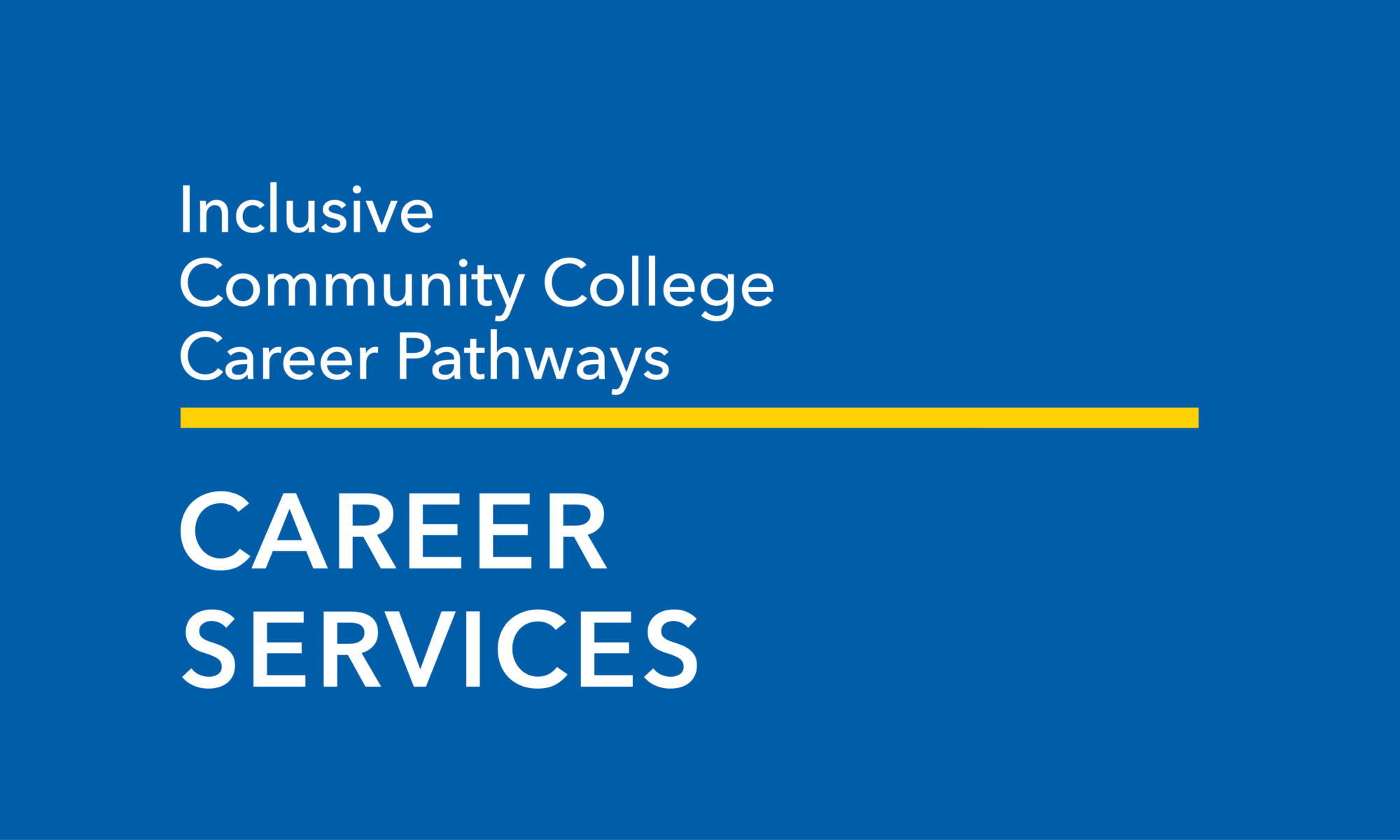This is the final installment of the Inclusive Community College Career Pathways blog series. Read the previous blogs here.
Systems of Support that Work Together
Colleges can collaborate with disability services, career services and community rehabilitation professionals to create customized supports that help students with disabilities find employment after finishing school. These supports include self-advocacy instruction, mentorship opportunities and tailored training and assistance. Together, customized supports help students develop skills to direct their own careers.
As part of their U.S. Department of Labor demonstration model grants, Onondaga Community College and Pellissippi State Community College offered customized supports to help students with disabilities build their confidence and success in the career development process. Supports included career assessments, goal-setting exercises, one-on-one counseling, group workshops and work-based learning experiences. The projects also aligned career supports with academic services, disability services and community partners to build coordinated systems of support for students with disabilities.
Supports that Lead to New Careers
Onondaga and Pellissippi State offered supports that addressed three key components of career development: (1) self-exploration, (2) career exploration skills and (3) career planning and management. The schools provided these supports through individual counseling, small group activities and campus-wide events. The projects also fostered student ownership of the process by encouraging them to identify their own work-based learning opportunities.
Onondaga offered one-on-one career and soft skills assessments to help students identify their employment interests, strengths and objectives. Students were then given a menu of opportunities, which included on-campus career fairs and job shadowing weeks, to advance their goals. The project also provided regular career readiness trainings for groups of students covering topics like choosing whether to disclose a disability to potential employers.
At Pellissippi State, project staff met weekly with students to help them pursue their career development goals. Career coaches helped students understand their career assessment and connected them with career readiness activities and work-based learning opportunities. Small group sessions covered topics like resume and cover letter writing, interviewing and self-introductions. The project also offered sessions specifically for students with Autism Spectrum Disorder, covering interpersonal interactions, self-advocacy and other relevant topics.
Coordinated Services Are Stronger
The projects coordinated career services with other college and community services to develop stronger student support systems. This included collaborating with college academic and disability services, the U.S. Department of Labor Office of Disability Employment Policy’s Workforce Recruitment Program, and state vocational rehabilitation and workforce programs.
Onondaga integrated services on campus by placing disability and career services offices alongside one another and by adding a disability-specific staff member to the Career Center. The college also partnered with New York’s vocational rehabilitation agency, ACCESS-VR, to provide on-campus services for students with disabilities.
Pellissippi State career specialists served as case managers guiding students through the program, including coordinating weekly meetings with academic and career coaches. They also worked with instructors, coordinated documentation for students (such as accommodation requests) and served as the students’ primary point of contact.
State Examples
States can play a key role in supplementing and expanding the career supports provided at specific colleges. Below are examples of how states are providing or encouraging such support.
- California Assembly Bill 504 requires community colleges to develop student equity plans in order to receive specific state funding. These plans must identify underrepresentation for specific categories of students (including those with disabilities) in access to, and completion of, basic skills, career technical education and workforce training. Community colleges must address any underrepresentation through the coordination of services using evidence-based practices.
- Delaware’s Supported Education at the Delaware Technical & Community College Program is a collaboration between the Division of Vocational Rehabilitation and Delaware Technical & Community College. It helps students with disabilities achieve objectives such as employment in their area of interest.
Previous Inclusive Community College Career Pathways Blogs:

